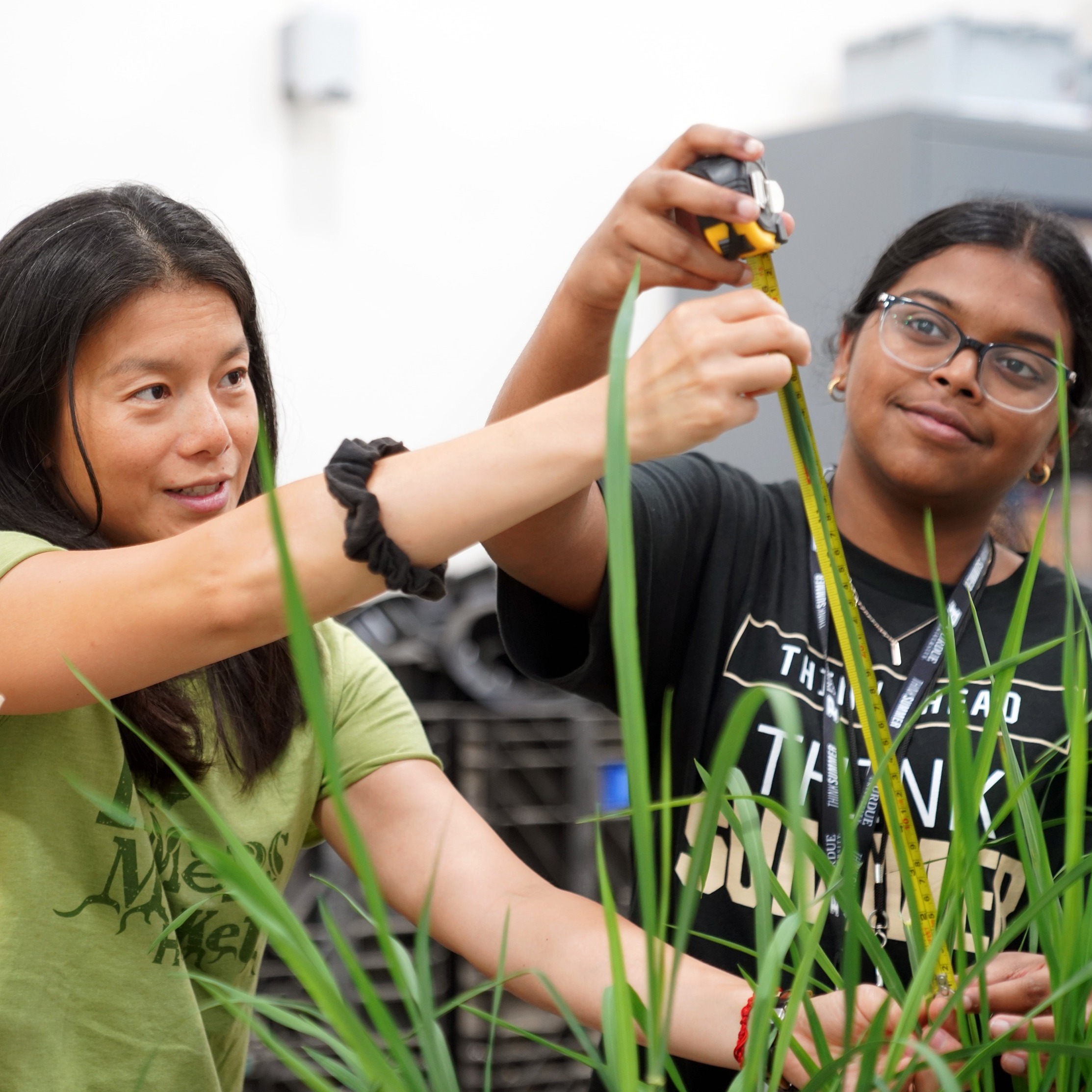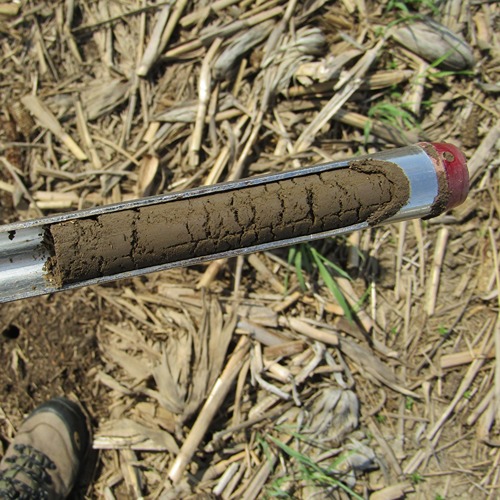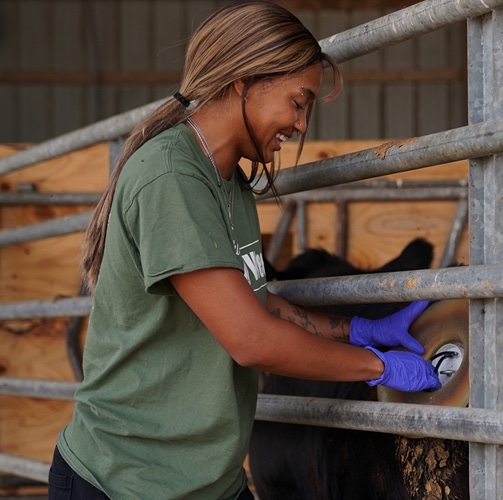“Media, from social media to online news sources, feels very noisy right now,” Angela Abbott, associate director of Purdue Extension and program leader of Extension Health and Human Sciences (HHS), said. “At the same time, people are stuck at home and desperate for information, but they don’t know which sources to trust.”
As she reflected on the COVID-19 pandemic and the public’s need for accurate and up-to-date information, Abbott explained this also exactly describes Purdue Extension’s mission. Extension brings forward information based on sound research that can cut through all the noise.
With a presence in every county, Extension delivers information to Hoosiers across Indiana, direct evidence-based information that can help us cope with rapidly changing societal circumstances related to COVID-19. Extension specialists and educators are busy developing innovative ways to communicate with communities, providing information to keep folks mentally and physically healthy and safe during the pandemic.
Many Extension county offices are creating videos for tips from guided exercises to literacy tips for kids attending school from home.
“Extension pulls communities together to make life better, especially in the worst of times,” Jason Henderson, director of Purdue Extension, said. “Our local educators responded to community needs by facilitating food deliveries to families that were hungry, providing at-home activities for youth, working with farmers markets and other agricultural businesses to keep food production going and helping volunteers make masks for the health care system. Extension also provides a science-based perspective and legitimacy to information and resources at the local level.”
Since 1914, Purdue Extension has focused on the needs of Indiana. Extension is not a branch of government and never engages in political advocacy, which Abbott said helps cross barriers sometimes erected by political affiliation, especially when it comes to current events.
When COVID-19 was recognized as a threat to the U.S. and a global pandemic, Extension began providing timely information and resources to people throughout Indiana.
For example, Amanda Deering, clinical associate professor and Extension educator for food science, has distributed materials about safe handling and washing of fresh produce and been interviewed by multiple regional and national media, including The Today Show on NBC. Blending information from the U.S. Food and Drug Administration with scientific research, Deering produced recommendations for how to approach produce shopping and food preparation.
“We are trying to ease the strain on consumers and growers alike,” Deering said. “There is a lot of misinformation circulating about best practices when it comes to COVID-19 and produce. We’re trying cut through the commotion to deliver sound advice, like how to wash produce before consuming and recommending that immunocompromised buy pre-packaged fruit and vegetables.”
County educators are also producing content tailored to meet the specific needs of their communities.
Kristen Lowry, HHS Extension educator in Posey County, produced short social media segments about how people can improve their well-being from home without needing to purchase resources. Her videos dealt with budgeting, working from home and even utilizing pantry staples to make meals.
“I monitor what the community is saying it needs through social media and through our Extension advisory committee and try to provide information that will meet stakeholders’ needs,” Lowry said. “Whether you’ve lost your job or are working from home while caring for children, this is an uncertain time for everyone. Anything we can do to ease people’s burdens is a win.”
Extension’s 4-H program has also led the way in delivering material for 4-H members and young people in general who are stuck at home and feeling cooped up and restricted.
Jenny Clark, 4-H Youth Development Extension Specialist - Communications and Marketing, said 4-H has focused on transitioning as much programming as possible into the virtual space, whether that’s offering live Zoom sessions on dog and horse showmanship or suggesting activities that support social and emotional wellness. The youth organization is adapting existing programs and creating new opportunities to be held online, like the hackathon hosted by 4-H computer science specialist Rachel Haselby later in April.
“I think the situation we’re in, while not enviable, is an opportunity to try new things,” Clark continued. “I’ve been so impressed by the rush of creativity and motivation to adapt, take risks and reach people. I think this is going to lead to more creative solutions in the future.”
Extension also connects individuals to local services.
“We are able to bring a huge number of resources to the table and make connections between groups across our community,” Lowry said. “People of all walks of life, from all different organizations, from preschools to nursing homes, recognize us as a resource and way to reach the more vulnerable members
“Extension leverages its relationships locally and nationally to provide the best information we can and use this to help people make better decisions for their families, their businesses and their communities,” Henderson added.
The operations of many organizations and businesses around the country will be permanently altered by the COVID-19 pandemic,
“Along with everyone else, how we operate and look in the future will be different. Obviously, how we use technology to deliver information, resources and insights will be different going forward. We’ve expanded our capacity there.” Henderson added. “At the end of this, I hope that everyone has more appreciation for each other because during this crisis we all experienced how much the loss of contact really hindered our lives – the realization we are more dependent on others than we thought. I think we will have more confidence in ourselves because we have demonstrated the innovation, creativity, resilience and grit needed to succeed.”







